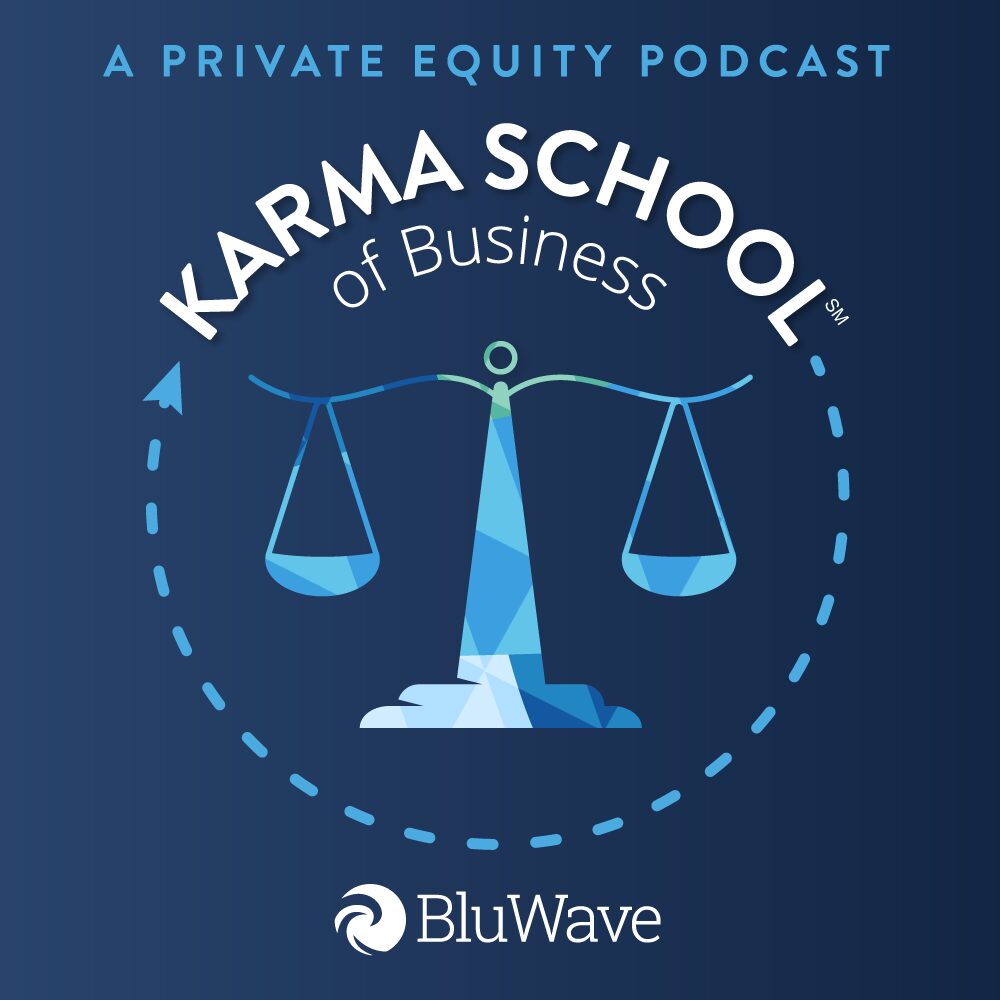Need: Value Creation
Private Equity Spotlight: The Art of the Deal with OpenGate’s Josh Adams
Private Equity Spotlight: Value and Vision with John Caple of Hidden Harbor
Private Equity Spotlight: Doron Grosman on Shaping Success Across Sectors
Private Equity Spotlight: The Art of Value Creation and Global Expansion with Livingbridge’s Curt Kahn
Private Equity Spotlight: Crafting the Independent Sponsor Model with Grant Kornman of Align Collaborate
Private Equity Spotlight: A New Chapter – Eric Hansen’s Transition to Blue Sea Capital
Private Equity Innovator of the Year: Kevin McAllister, Access Holdings
Private Equity Spotlight: Building Success with Tim Schulte of Council Capital
Senior Advisor for Roll-Up of Gas Stations, Convenience Stores
Service Area: Human Capital
Client Type: Lower-Middle Market PE Firm
Service Provider Type: Senior Advisor
Industry: Real Estate
An East Coast real estate investment firm required external expertise to evaluate a retail transaction involving the roll-up strategy of approximately 100 gas station and convenience store locations. They sought a seasoned advisor to provide high-level analysis, identify potential red flags and validate strategic assumptions.
The firm needed an advisor with a robust background in both retail operations and real estate, particularly in gas stations and convenience stores. This individual had to possess the capability to synthesize data, offer strategic insights and ensure the firm was making informed decisions within a tight year-end timeline.
BluWave connected the firm with a short list of senior advisors who had extensive experience in the gas station and convenience store sector, including significant transactions and operational expertise. This advisor had a successful track record of consulting on similar deals, providing strategic guidance and facilitating higher-than-expected sales outcomes for clients.
With the senior advisor’s contribution, the firm proceeded with confidence, armed with expert insights that validated their strategic direction and investment assumptions. The advisor’s involvement led to a thorough evaluation of the roll-up strategy, ensuring that all critical factors were considered and that the firm was positioned for successful negotiations and acquisitions.
Enjoyed working with him. He demonstrated an expert knowledge of the subject matter and was excellent. I would welcome the opportunity to work with him again and would recommend anyone else do the same. He was willing to make himself available and prioritize our project.
-Principal, Acquisitions at PE Firm
Hiring Board Members for a Manufacturing Company
Manufacturing companies recognize the value of board members who bring not just oversight but also strategic guidance to complex challenges. In this post, we’ll discuss the critical aspects of board advisory roles, drawing insights from recent BluWave client experiences across different use cases within the industry.
We have seen how board members transcend traditional oversight roles to become pivotal figures in strategic decision-making, operational excellence and leadership development.
Let’s explore the necessity of assembling a board that can genuinely add value and steer your company toward sustainable success.

Examples of Manufacturing Business Types
The manufacturing sector is diverse, with each segment presenting unique challenges and opportunities. Here are examples illustrating the spectrum of businesses within the industry:
- Specialty Manufacturing: Companies focused on producing specialty items, such as casters and wheels, face distinct market demands and operational scalability challenges.
- Steel Manufacturing: Firms in the steel sector must navigate capital-intensive processes, global supply chain dynamics and stringent regulatory standards.
- Low-Speed Vehicle Manufacturing: Manufacturers of low-speed vehicles cater to niche markets, requiring precision in sourcing, logistics and maintaining competitive advantages.
- Machine Shop and Metal Fabrication: Businesses specializing in metal fabrication and machining services must prioritize operational efficiency and technological integration to stay ahead.
Here are some of the ways board members can help these businesses thrive:
Strategic Guidance
Board advisors bring a wealth of experience and insight that is critical for navigating the complexities of the global market. Their role goes beyond mere consultation; they actively participate in shaping the strategic direction of the company. By analyzing market trends, assessing competitive landscapes and identifying growth opportunities, these seasoned professionals provide actionable recommendations that align with the company’s long-term goals. Their foresight helps companies pivot in response to market changes, ensuring that strategic initiatives are both agile and grounded in solid market research.
Furthermore, board advisors facilitate strategic networking, connecting the company with potential partners, customers and industry experts. This role is particularly vital in an era where collaboration and strategic alliances can significantly accelerate growth and innovation. Through their extensive networks, board advisors open doors to new markets, technologies and talent, thereby enhancing the company’s capabilities and competitive positioning.
Operational Excellence
Operational excellence is paramount in manufacturing, where efficiency, quality and speed are closely linked to profitability and customer satisfaction. Board advisors play a crucial role in promoting best practices in production, supply chain management and quality control. By leveraging their experience, they help identify areas for improvement, streamline processes and implement lean manufacturing techniques. This not only enhances productivity but also reduces costs, waste and inefficiencies, driving operational excellence throughout the organization.
In addition to process optimization, board advisors also emphasize the importance of innovation in operations. They encourage the adoption of advanced technologies and automation to improve manufacturing processes and product quality. Their guidance helps companies stay ahead of technological trends, ensuring that they remain competitive in an evolving industry. By fostering a culture of continuous improvement and innovation, board advisors help companies adapt to changing market demands and technological advancements.
Leadership Development and Mentoring
The success of any manufacturing company significantly depends on the strength and vision of its leadership. Board advisors invest time and resources into developing a robust leadership team capable of steering the company toward its strategic goals. Through mentoring programs, they share their knowledge and experiences, providing guidance on effective leadership practices, decision-making and strategy execution. This mentorship is invaluable for nurturing a generation of leaders who are not only skilled managers but also visionary thinkers with the ability to drive the company forward.
Moreover, board advisors play a key role in succession planning, ensuring that the company has a pipeline of talented leaders ready to take on key roles as the organization evolves. They help identify leadership potential within the organization, fostering a culture of growth and development. This proactive approach ensures that the company remains resilient in the face of change, with a leadership team that is well-equipped to overcome future challenges.
Financial Oversight and Risk Management
Board members provide critical oversight, ensuring that the company’s financial strategy is robust, sustainable and aligned with its overall strategic objectives. They oversee financial planning, investment decisions and risk management practices, offering insights that help optimize financial performance and shareholder value. Their expertise is crucial for capital allocation, funding for growth initiatives and financial risk mitigation.
Board advisors also play a pivotal role in identifying and managing risks that could impact the company’s financial health and operational stability. From market fluctuations and supply chain disruptions to regulatory changes and cybersecurity threats, they help develop comprehensive risk management strategies. This involves not only identifying potential risks but also preparing contingency plans and response strategies to minimize impact.
Acquisition and Integration Advisory
As manufacturing companies seek growth through acquisitions, board advisors provide invaluable guidance. From identifying potential targets to conducting due diligence and negotiating deals, their expertise ensures that acquisitions are strategically sound and aligned with the company’s vision. They bring a critical eye to the evaluation of potential acquisitions, assessing not only the financial aspects but also the cultural and operational fit.
Post-acquisition, board advisors are instrumental in the integration process, ensuring that the transition is smooth and that the acquired company is effectively integrated into the larger organization. They help face the challenges of merging operations, cultures and systems, working to realize synergies and achieve the strategic objectives of the acquisition. Their experience in managing change and fostering alignment among stakeholders is crucial for maximizing the value of acquisitions and ensuring their success.
Regulatory Compliance and Corporate Governance
In the highly regulated environment of manufacturing, adherence to legal standards and best practices in corporate governance is non-negotiable. Board advisors ensure that the company not only complies with existing regulations but also proactively addresses emerging legal and ethical considerations. Their oversight is critical in maintaining the company’s legal standing, protecting its reputation and avoiding costly penalties and litigation.
Moreover, board advisors champion transparency, accountability and ethical conduct throughout the organization. They help establish governance frameworks that promote ethical decision-making, stakeholder engagement and responsible business practices. Their commitment to upholding the highest standards of corporate governance fosters a culture of integrity and trust, which is essential for sustaining the company’s long-term success and maintaining positive relationships with customers, employees and the broader community.
Board advisors are the linchpin in the strategic and operational fabric of manufacturing companies. Their roles extend beyond traditional governance, encompassing strategic planning, operational optimization, leadership development, financial stewardship and much more.
As the manufacturing industry continues to face rapid changes and new challenges, the insights, expertise and leadership of board advisors will remain indispensable for companies aiming to achieve excellence and sustainable growth.
BluWave’s research and operations team knows industry-specific candidates for your exact situation. Contact them for a scoping call and they’ll provide a short list of experienced options within a single business day.


